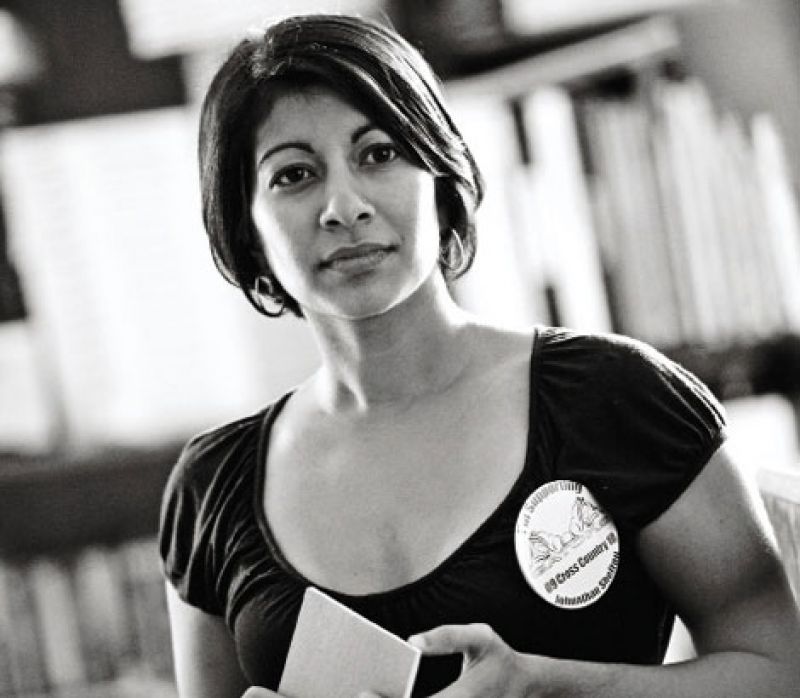
Age: 30
Home: Park Circle
Profession: High school English teacher
Passions: Teaching and Slow Food Charleston, which she helped found with her husband, Matt, co-owner of EVO Pizza
Find Mahwish: slowfoodcharleston.org and freedomwriters-foundation.org
“When my students write in their free time, it’s poetry, songs, rap—their version of literature,” explains Goose Creek High School 10th-grade English teacher Mahwish (“MEV-ish”) McIntosh. “It doesn’t have to be a complex literary novel; it can be something simple, like the backbone of a story. That glimmer is what I encourage.”
As a Freedom Writer—a small but growing group of educators whose unorthodox methods aim to help students express themselves verbally and in writing—McIntosh has replaced long lectures and slide shows with exercises that prompt students to “find their voice” via debates and journaling. The daughter of Indian-American immigrants who settled in Columbia, South Carolina, McIntosh discovered the power of the pen as early as fourth grade. “Writing was my way of communicating when I didn’t feel comfortable or confident enough to get the words out,” she says.
Open-minded acceptance is a central aspect of the Freedom Writer Method, which grew out of the need to bridge divides within a racially mixed Southern California student body overrun with gangs, drugs, and poverty—a story that hit the big screen in 2007 starring Hilary Swank. That fall, McIntosh met Erin Gruwell, the pioneering teacher played by Swank, and the two discussed the Freedom Writer Institute, a five-day workshop where educators learn how to engage students with thought-provoking activities. Knowing tuition would be cost-prohibitive, McIntosh didn’t apply, but she received the surprising news that her passion for teaching had earned her a $10,000 scholarship.
After the intensive workshop, McIntosh returned to Goose Creek High armed with resources to help students embrace diversity, a corollary goal of the multicultural literature curriculum she teaches to both honors and prep tech students. Classroom discussions draw upon a rich collection of authors, including Amy Tan, Zora Neale Hurston, Asne Seierstad, and Chitra Banerjee Divakaruni. “This year, I will have each student find a piece of literature, be it a short story or a poem, that reflects their ancestry and their heritage to compile into a classroom anthology,” says McIntosh. While students work to relate to their forebears, they also connect with their fellow students. “Through Mahwish’s efforts, students learn that their peers can be accepting if they know what others are experiencing,” says Gwen Scarborough, Berkeley County School District work-based learning coordinator.
“When I was young,” says McIntosh, “I had a plaque with one of my father’s favorite sayings: ‘Grow where you are planted.’ That phrase has resonated with me throughout the years, especially since becoming a teacher.”